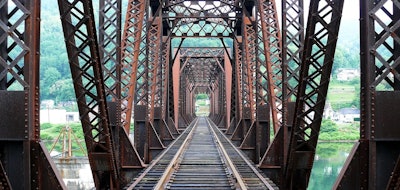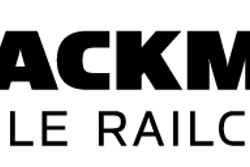
The chief executives of the nation's railroads have all received letters from the acting chair and the vice chair of the Surface Transportation Board, requesting information on the current status of their respective beleaguered operations and how they are planning to improve them, according to a report from FreightWaves.
Reports are increasing that the surge in freight traffic over the last six months has overwhelmed railroads, and service has particularly deteriorated since November. Canadian National officials, in particular, spent much of a presentation last week at an investor's conference speaking about how it plans to clean up its current problems.
But the issues are not restricted to Canadian National. The STB is an independent agency that regulates rail rates, reviews mergers for approval, and in general seeks to clear up problems.
The letter from acting chair Ann Begeman and vice chair Deb Miller, dated March 16, went to the CEOs or Presidents of BNSF, Canadian Pacific, CSX, Kansas City Southern, Norfolk Southern and Union Pacific. The letter specifically cited recent letters the STB received from the National Grain and Feed Association and the Alliance of Automobile Manufacturers, expressing "serious similar concerns about the reliability of the nation's freight railroad network," according to the STB letter. "Both letters described significant degradation in rail service in recent months."
The information requested by the STB included information on:
- Locomotive availability: number of existing locomotives, whether the number is adequate to meet demand, and purchase plans for 2018
- Employee resources, including current headcount and hiring plans
- Local service performance, "including specific yards or locations where where performance is trending below historical norms""
- Expectations for demand in 2018
- "(I)nitiatives to proactively communicate with shippers regarding service issues"
- Capacity constraints: the request is to identify particular points on the railroads' respective networks where there is "sustained congestion," and what steps are being taken to fix that
No deadline for the information is given.
The letter by the National Grain & Feed Association sent March 10 ... stated that greed is at the heart of the railroads' issues. "(T)here is a fundamental concern among rail customers that the underlying root cause of these service and accessorial charge-related issues is Class I railroads’ aggressive effort to reduce their operating ratios to impress Wall Street investors and shareholders," the letter, signed by Randall Gordon, president and CEO of the Grain Association, said.
That letter rips each of the railroads individually, with specific complaints. Among them:
- BNSF: The industry is experiencing significant transit delays and increased dwell time on BNSF trains destined to the Pacific Northwest, leading to significant deterioration in cycle times on shuttles.
- Canadian National: A long list, which includes misrouted cars, swithching problems that have led to "costly plant shutdowns and production declines in processing plants subject to manifest and local service."
- Canadian Pacific: "Significant" delays of 8-10 days in the last 45 days of last year, "leading to increased dwell time." (Canadian Pacific got off fairly easy in the letter; that was the only complaint).
- CSX: A lengthy list of concerns, including "the service impacts resulting from slashed resources as CSX continues to implement the 'precisoin scheduled railroad' concept. (A recent CSX presentation was greeted positively by analysts.)
- Norfolk Southern: "NS service began declining precipitously across all types of traffic, including grain unit trains, manifest trains and intermodal starting in late November and early December. Manifest trains were sitting for multiple days, at times for up to two weeks, in various locations...waiting for locomotive power."
- Union Pacific: A lengthy list. "Reports of empty trains sitting idle and waiting to be pulled for up to a week or longer at some origins and destinations."
Read the entire report at FreightWaves by clicking here.


















